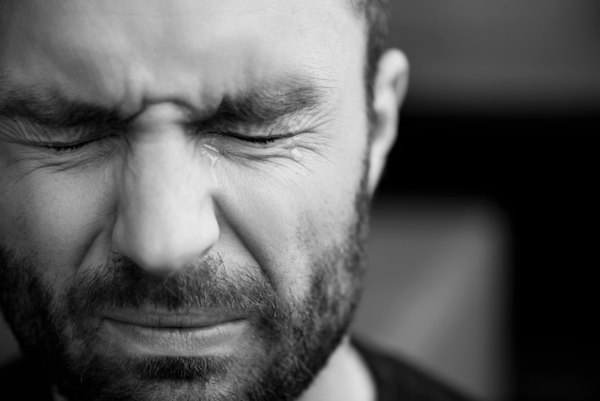Just as we feel physical pain when there’s something wrong with our bodies, we feel emotional pain when there’s something wrong with the non-physical parts of our lives.
Pain is a feedback signal telling you that you must pay attention to and solve a problem.
Emotional problems, real or perceived, cause emotional pain. Bigger emotional problems, real or perceived, cause extreme emotional pain.
Extreme emotional pain is caused by festering unresolved problems, or when a sudden, colossal problem hits you out of the blue. The biggest problems in life revolve around survival and reproduction.
Extreme emotional pain is usually caused by:
- Relationship failure
- Career failure
- Health issues
- Trauma (lingering emotional pain)
Painful emotions that one experiences when they’re in deep emotional pain include:
- Depression
- Grief
- Loneliness
- Emptiness
- Anger
- Anxiety
- Hopelessness
Unhealthy coping mechanisms
When you experience intense emotional pain, you want to get rid of them as quickly and easily as possible. This leads to unhealthy coping mechanisms like bad habits and addictions.
While these unhealthy coping mechanisms make you feel better in the short run, they cause you more harm in the long run.
Healthy coping mechanisms
There are better, healthier ways to cope with intense emotional pain. These may take a little longer to make you feel better, but they have little to no long-term costs.
For example:
- Practicing self-care
- Meditation
- Connecting with others
- Exercising
- Yoga
- Spending time in nature
These self-soothing or relaxation techniques are great for managing mild emotional pain and getting out of the funk. The mind can put some problems on hold while you exercise and do yoga stretches.
But, but, but:
When the problem is too big and leads to extreme emotional pain, the mind sees that problem as urgent! It goes into emergency mode.
In such situations, your mind will completely pause your life because it wants you to pay attention to the dire problem at hand. Self-care will be the last thing you’ll want to do when you’re feeling this way.
Solution-oriented approach
I prefer a more solution-oriented approach that I talked about in my book on depression.
The gist:
You can’t convince your mind to calm down and stop sending you emotional pain when you’re going through a crisis. You have to find a way to convince your mind that you’ve:
- Acknowledged the problem
- Taken a step to solve it
The best thing about this approach is that you don’t have to solve the problem immediately. Taking the first step, no matter how small, will reduce your emotional pain by half.
The ideal way to do this would be journaling. Write down what you’re going through and make a plan to solve your problem. You could use the Notes app on your phone like I do. Create a note and dump your big problems there.
Create an initial plan to solve the problem.
I’ve called this technique problem-shelving before.
Instead of solving a complicated problem urgently, you shelve it for later. Your mind calms down because you’ve acknowledged the problem. Making a plan is a good first step towards solving the problem.
Intense emotional pain can completely derail your life, but it doesn’t have to. When you’ve shelved your problem, you’ve turned your emotional pain from severe to mild. When that happens, you can continue with your self-care and daily activities.

